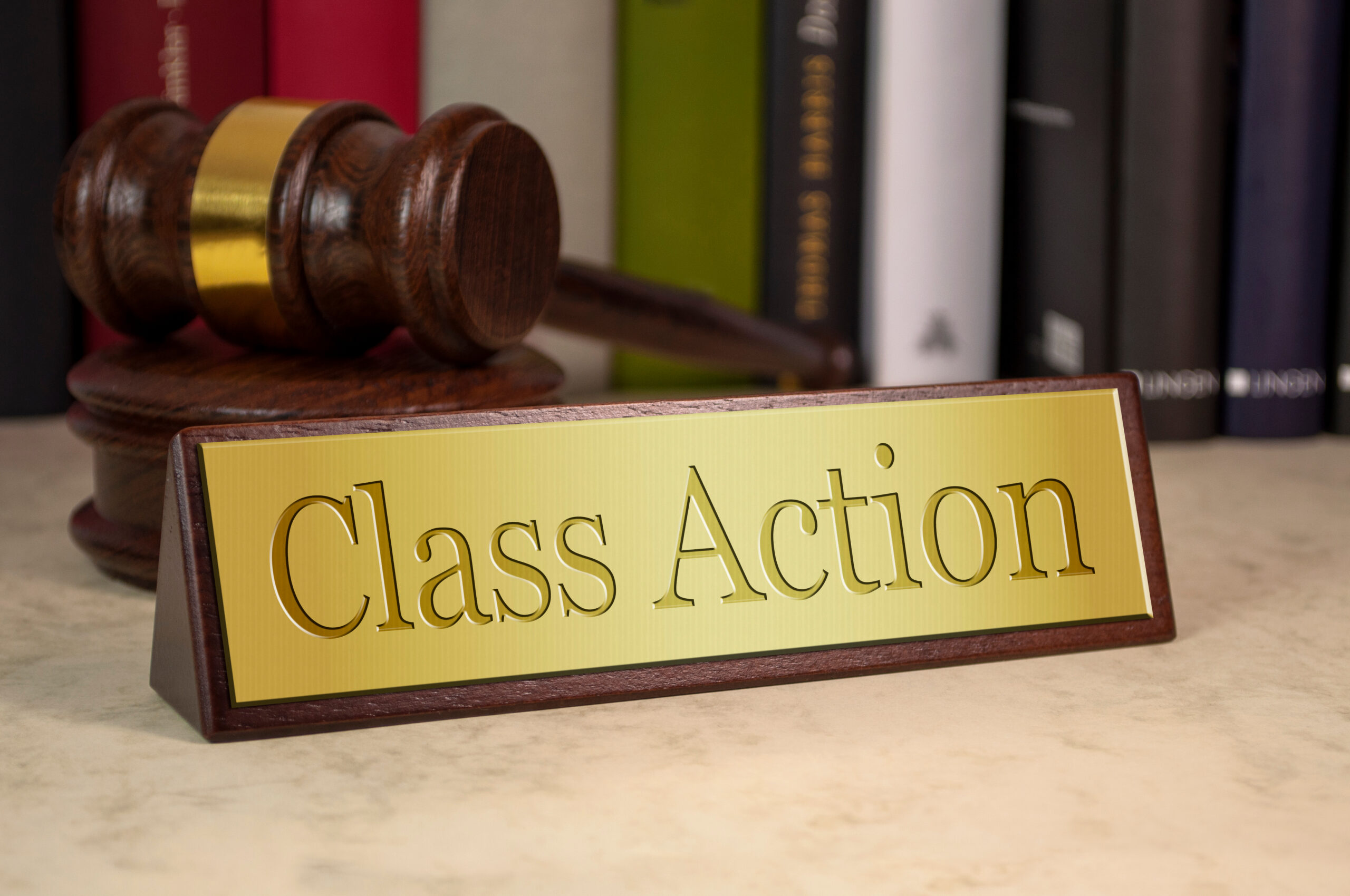If you are part of a large group of people who have been injured by the actions of another party, one of the best ways to defend your rights is to file a class action lawsuit against the defendant. Our guide answers some frequently asked questions about class action lawsuits.
What Is a Class Action Lawsuit?
A class action lawsuit is a type of civil action filed on behalf of a group of individuals or businesses that have suffered similar harm because of the defendant’s actions. Though the specifics of each plaintiff’s story may be unique, they have all been impacted by the same core issue that the lawsuit is based on. In a class action lawsuit, at least one person or entity represents the entire group, rather than each plaintiff bringing their own legal representation.
Depending on the case, you can file a class action lawsuit in either state or federal court. If the matter involves federal laws, the federal court has jurisdiction.
How Do Class Action Lawsuits Work?
In a class action lawsuit, one or more designated plaintiffs act as representatives for everyone in the lawsuit. These designated plaintiffs, known as named plaintiffs, initiate the legal proceedings, file the case, and actively participate in the legal process. The rest of the plaintiffs are known as unnamed plaintiffs, and though they don’t have the same responsibilities as the designated plaintiffs, they do share the same legal claims.
The court certifies the class action lawsuit once the named plaintiffs file the case. This means that the court confirms that all the unnamed plaintiffs have a claim similar to that of the lead plaintiffs. The lead plaintiffs and the attorneys representing the class will present evidence in court to prove their claim.
Sometimes, the defendant may offer a settlement. The plaintiffs can decide to accept or negotiate the settlement offer. If the parties can’t reach an agreement, the case will end up in court. After the trial, the court’s decision is binding for all plaintiffs and defendants.
What Are the Requirements for Class Action Lawsuits?
You will find the federal requirements for a class action in Rule 23 of the Federal Rules of Civil Procedure. This is similar to the requirements under the Texas Rule of Civil Procedure 42 and Louisiana Code of Civil Procedure 591.
Here are the requirements:
- Numerosity: Before you can bring a class action, the case must affect a substantial number of people who all suffered from the same legal issue and are entitled to make a claim together.
- Commonality: The class action must involve questions of law or facts common to the plaintiffs.
- Representative Leaders: The claims or defenses of the named plaintiffs must be typical of the claims or defenses of other members of the class.
- Adequacy of Representation: You must show that the named plaintiff will adequately represent and protect the interests of the members of the class.
What Are Common Examples of Class Action Lawsuits?
Class action lawsuits often arise when several individuals suffer similar harm caused by another party’s negligence. Here are some examples:
- Securities Fraud: Investors who suffer losses because of conduct by companies or board members can come together and file a class action against the responsible parties. For example, Tesla investors filed a class action lawsuit against Elon Musk claiming that his tweet saying he would take Tesla private, which he didn’t do, caused them significant losses. Although the jury held in Musk’s favor, things could have gone the other way.
- Employment Dispute: Employees who are victims of unlawful practices, such as discrimination or wage and hour law violations, can file a class action lawsuit against their employer.
- Breach of Contract: If a large company makes written promises to multiple parties and fails to fulfill them, those aggrieved parties can collectively file a class action.
- Defective Products: When a faulty product harms many consumers, those affected can unite and file a class action product liability case against the manufacturer.
- Toxic Exposure: Instances of widespread exposure to toxic substances can lead to class actions. Individuals who have suffered harm or health issues due to the exposure can hold the responsible parties accountable for their injuries.
How Much Does It Cost To Join a Class Action Lawsuit?
Joining a class action lawsuit is entirely free. Sometimes, you may be unaware of your right to the legal claim until you know about the class action. Consider your options well before deciding to join the lawsuit.
If, after you join the class lawsuit, you realize your damages exceed those of other people in the class, it may be better to opt out and file your case individually. This is because being part of a class action lawsuit bars you from filing further legal action for the same issue once the case has been concluded.
How Much Money Do Plaintiffs Get From a Class Action Lawsuit?
Even though class action lawsuits sometimes settle for millions of dollars, what a plaintiff will get depends on several factors, including:
- How many lead plaintiffs are involved
- The number of injured plaintiffs
- The total number of class members involved in the lawsuit
- The settlement or award amount
- How many people file a valid claim
Although the settlement amount in a class action may be high, the individual payouts may be low, as thousands or even millions of people may be qualified to file a claim. For example, Facebook paid $725 million in a privacy settlement in 2023. About 17.7 million Facebook users submitted a claim, so each person will receive around $30.
Who Gets Paid the Most in a Class Action Lawsuit?
The lead plaintiffs typically receive more money than other people in the class because they either suffered more damage or spent more time and effort on the case than the other participants.
The lawyers and other participants involved in the case will also receive a cut from the settlement or award amount. Note that lawyers who take on class action cases usually work on a contingency fee arrangement. So, they don’t receive any payment if the case is unsuccessful. However, if they recover compensation, they are entitled to a percentage of the amount recovered.
Sources:
Rule 23 of the Federal Rules of Civil Procedure
Texas Rule of Civil Procedure 42
Louisiana Code of Civil Procedure 591
Harvard Law School: Litigation: Class Action
The New York Times: Jury Rules for Elon Musk and Tesla in Investor Lawsuit Over Tweets
Forbes: Facebook Privacy Settlement Payouts: Here’s How Much Money You’ll Get









